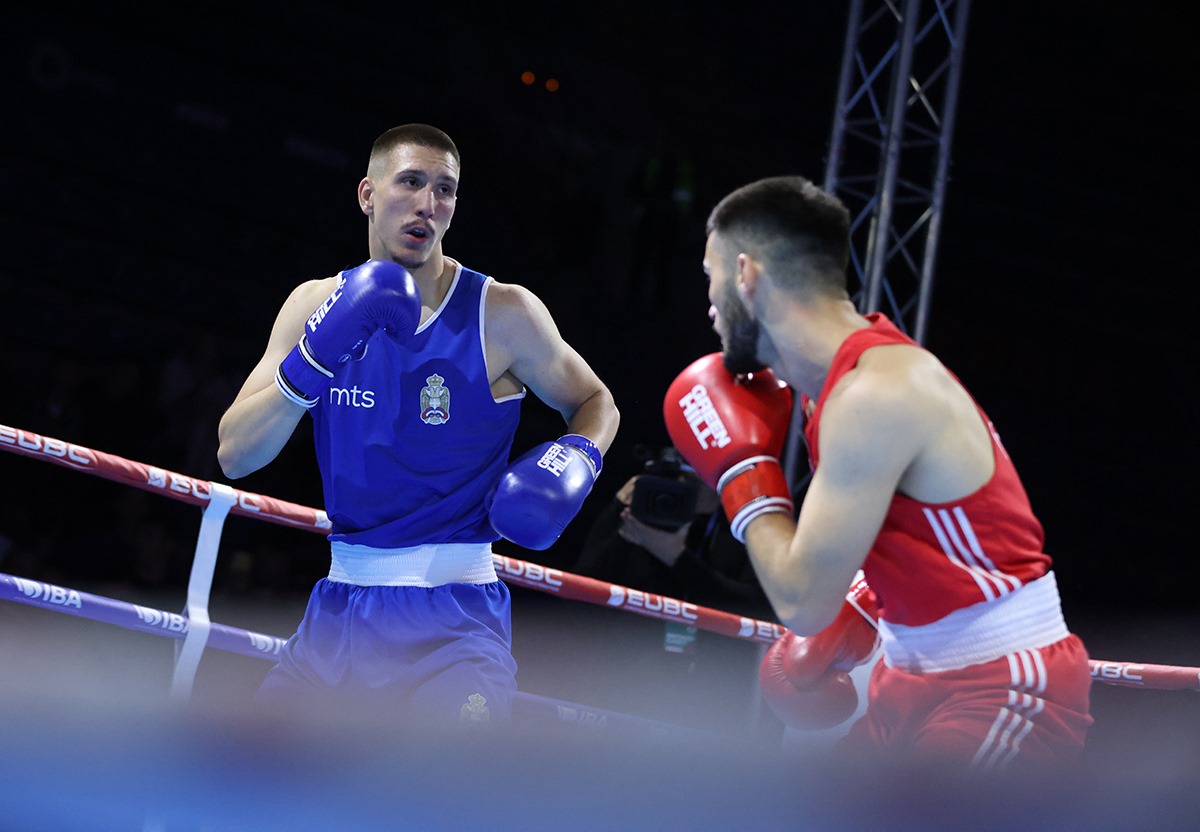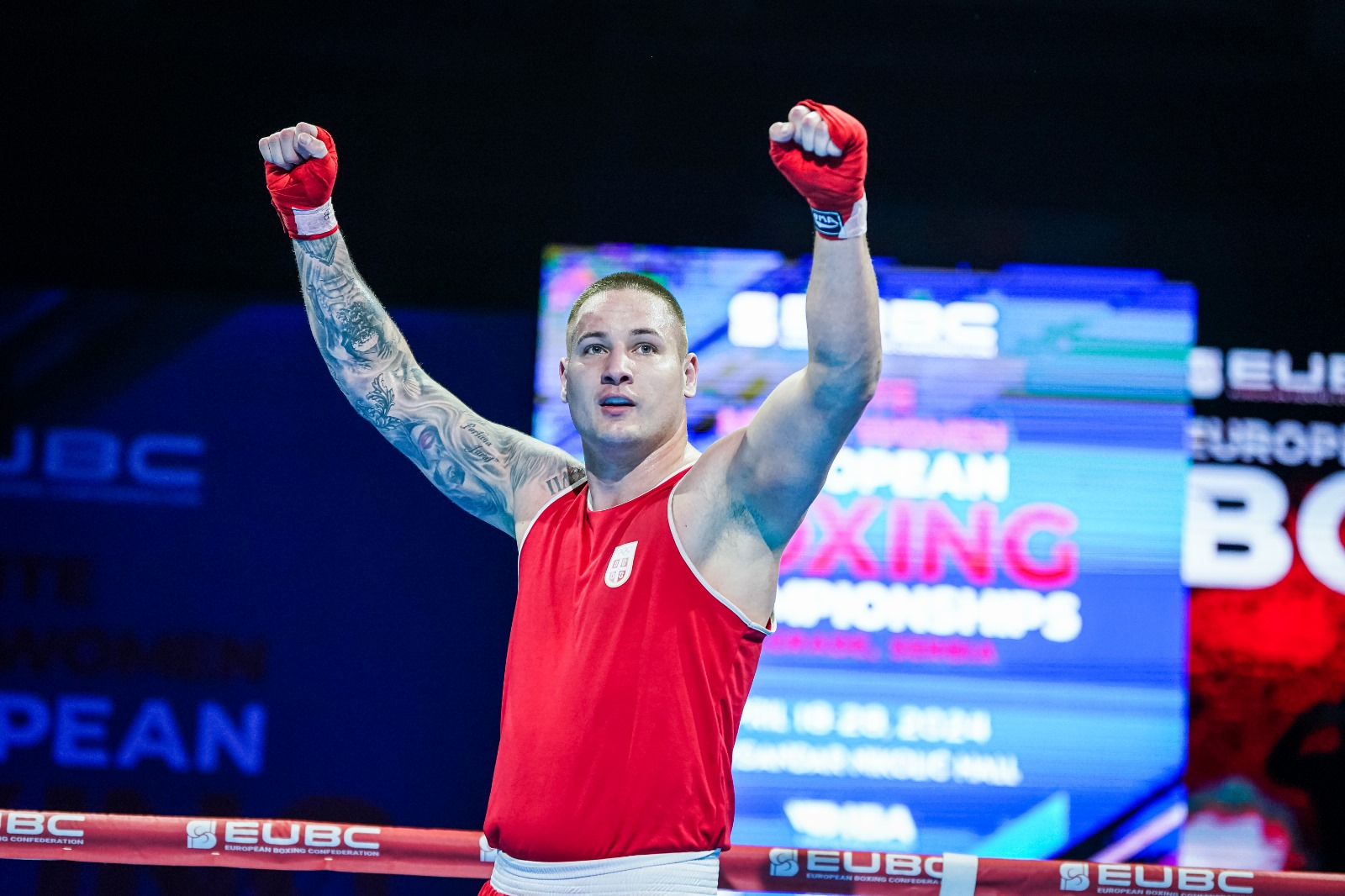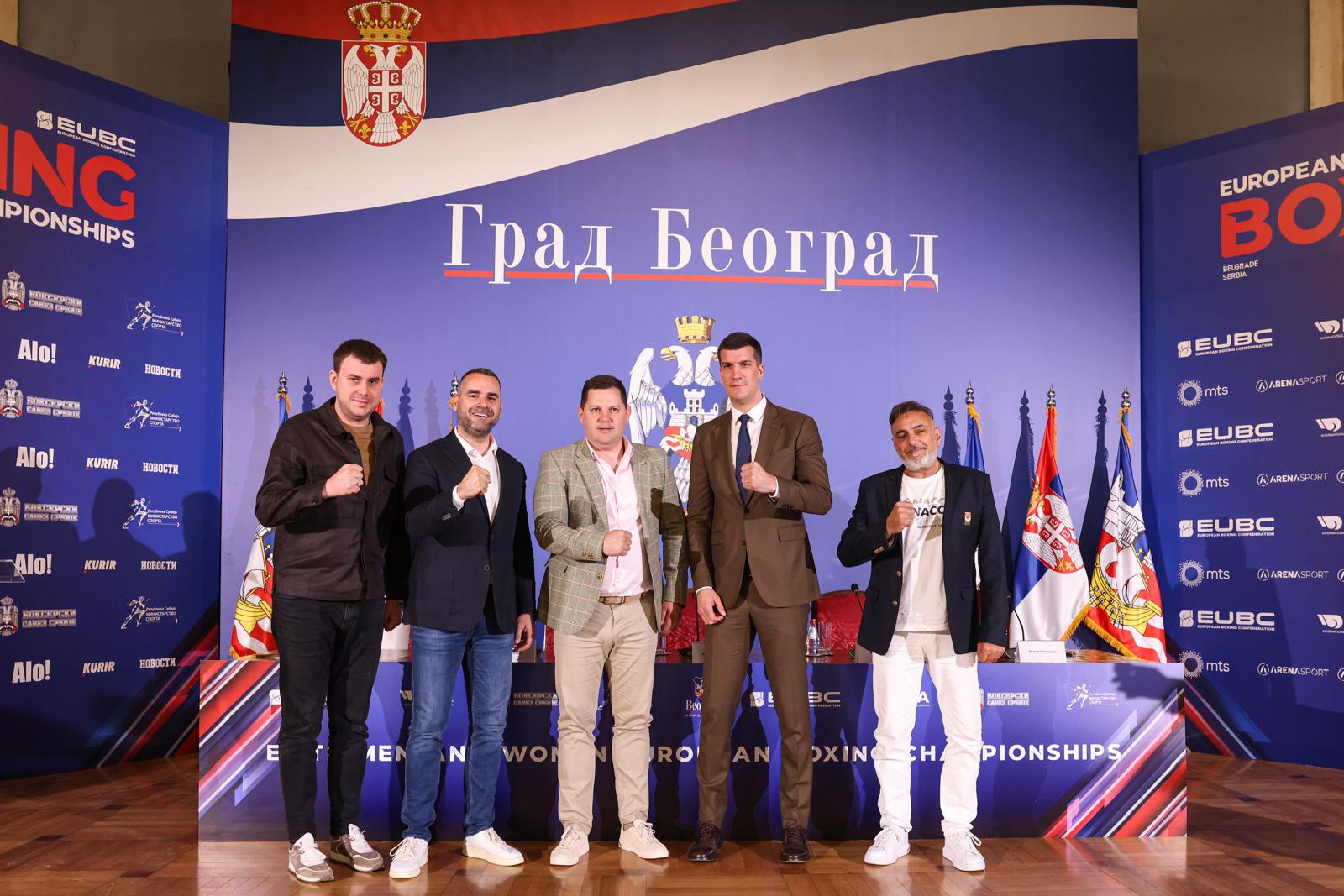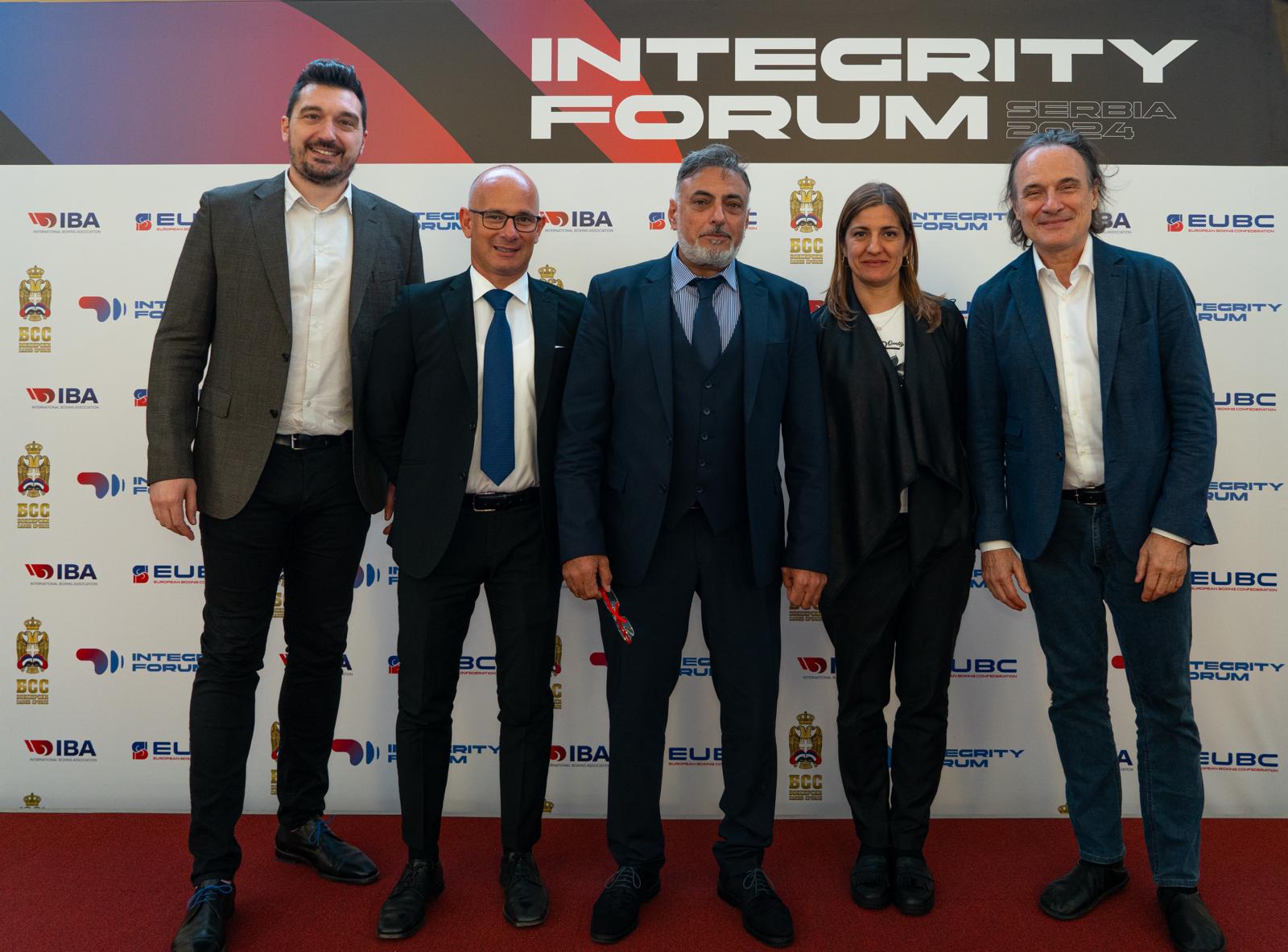news
featured

19 countries secured medals at the Elite European Championships
Seven competition days were completed at the EUBC Elite Men and Women European Boxing Championships in Belgrade, Serbia. 3…

Fantastic start of Serbian boxers in Belgrade
After three days of boxing at the EUBC Elite Men and Women European Boxing Championships, the host nation’s boxers have the streak of s…

Press Conference was held in Belgrade City Hall
Belgrade is a center of European boxing these days, since the EUBC Elite Men and Women European Boxing Championships started in the Serbian capital…
events
upcoming
BOXAM INTERNATIONAL TOURNAMENT 2023 FOR JUNIOR, YOUTH AND U22
INTERNATIONAL BOXING TOURNAMENT "LAH NIMANI"
7 TH JUNIORS NATIONS CUP – 2023 VRBAS SERBIA
XXXVIII FELIKS STAMM INTERNATIONAL BOXING TOURNAMENT
OPEN REGIONAL BOXING TOURNAMENT IN MEMORY OF ABSOLUTE CHAMPION OF THE USSR A. YUKOV
INTERNATIONAL BOXING TOURNAMENT «KONSTANTIN KOROTKOV MEMORIAL»
EINDHOVEN CUP
72TH BORNEMISSZA GERGELY INTERNATIONAL BOXING TOURNAMENT
INTERNATIONAL BOXING TOURNAMENT NAMED AFTER V.BATVINNIK
III EUROPEAN GAMES
EUBC JUNIOR EUROPEAN BOXING CHAMPIONSHIPS
BRANDENBURG CUP



